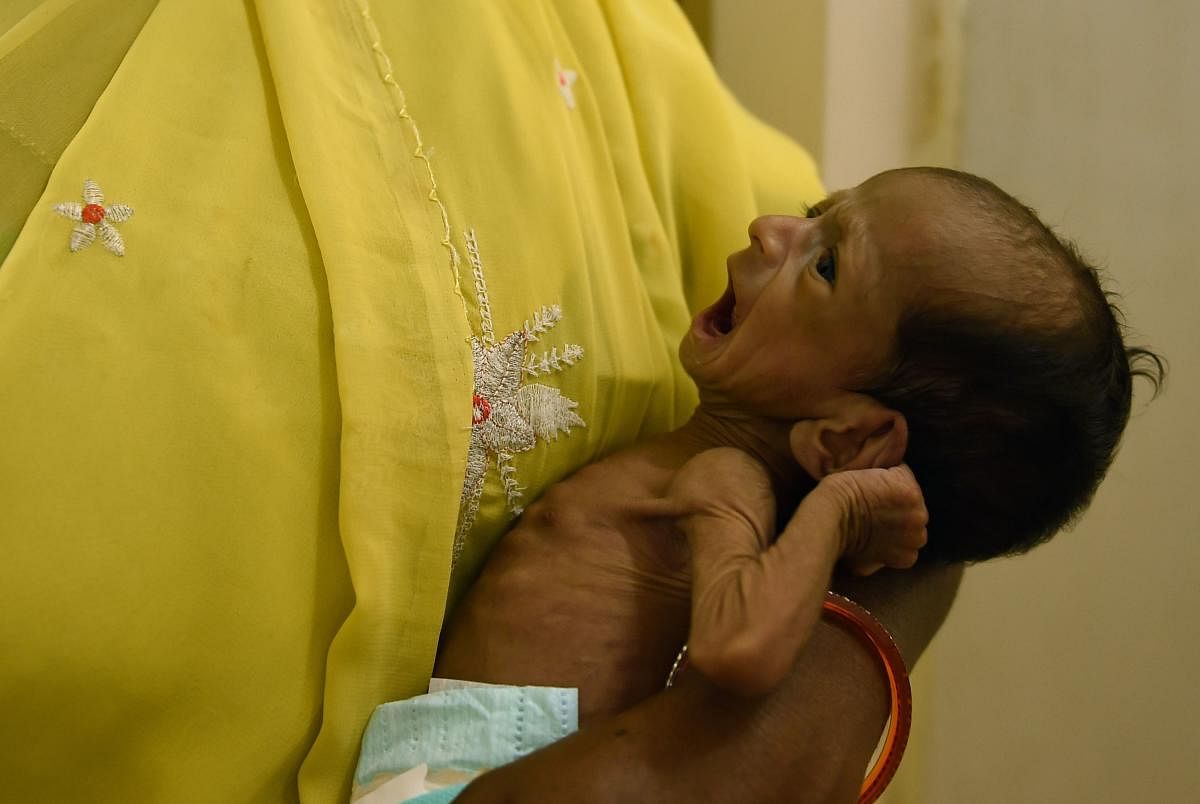India tops the world in a maximum number of under-five child deaths in 2017 with a count of more than a million.
Along with India, three other countries - Nigeria, Pakistan, and Congo - account for the largest number of child deaths in 2017, according to a new study published in Nature on Wednesday. Sadly. Two-thirds of those deaths were preventable.
Child deaths have decreased globally from 19.6 million in 1950 to 5.4 million in 2017, occurring mostly in low and middle-income countries. In 2017, such nations accounted for 93 percent of child deaths.
At the national level, the largest number of child deaths occurred in India (1.04 million) followed by Nigeria (0.79 million), Pakistan (0.34 million) and the Democratic Republic of the Congo (0.25 million).
Within these countries, the geographical distribution varied. In Pakistan, over 50 per cent of child deaths in 2017 occurred in Punjab province, which had an under-5 mortality rate of 63.3 deaths per 1,000 live births. By contrast, 50 per cent of child deaths in Congo in 2017 happened in 9 out of 26 provinces.
“It is as reprehensible as it is tragic that, on average, nearly 15,000 children under age 5 die every day,” said Simon Hay, senior author of the study and director of the Local Burden of Disease group at the Institute for Health Metrics and Evaluation at the University of Washington’s School of Medicine.
The study is the first of its kind, mapping child deaths in 99 low- and middle-income countries at the level of districts.
The vast majority of the 17,554 districts among the 99 nations studied saw improvement in lowering child deaths, but levels of inequality between districts were variable. Despite major gains in reducing child deaths over the past 20 years, the highest rates of death in 2017 were still largely concentrated where such rates were the highest in 2000.
Going by the official data, India had under-five mortality of 43 per 1,000 in 2015, which rose to 39 in 2016. In 2015, Assam and Madhya Pradesh had the worst record of under-five deaths (62 per 1,000) followed by Odisha (56), Uttar Pradesh (51) and Rajasthan (50).
According to the IHME study, Uttar Pradesh (59.7) and Assam (54.9) remained the two black spots while the situation improved in Madhya Pradesh (50.7), Odisha (49.1) and Rajasthan (48.3)

